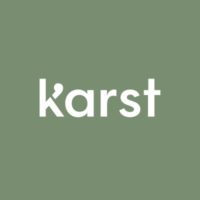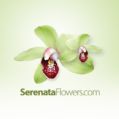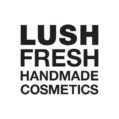Disrupting the Paper Industry with Recycled Rubble: Q&A with Karst
by Hugh Williams on 23rd Oct 2019 in News


In this Q&A, DTC Daily talks to Jon Tse (pictured below), co-founder, Karst Stone Paper, a brand disrupting Moleskine, Leuchtturm1917, and the pulp paper industry with their stone paper notebooks, made from recycled rubble. He outlines why the industry was rife for disruption, maintaining their strong growth levels, and how word of mouth has driven customer acquisition.
What is Karst Stone Paper, and why did you decide to adopt a direct-to-consumer business model?
We’ve built Karst to create a more sustainable and productive world through thoughtfully designed products that inspire people and workplaces to live more consciously on a daily basis. Our products include the world’s first stone paper sketchpad, notebooks, journals and planners, treeless pencils and pens with sustainable ink refills and other eco-friendly alternatives. We have been global since day one and have shipped to over 81 countries in the first two years since launch and this reflects the power of DTC businesses; instant and immense distribution. Although we started as a purely online business, our customers have helped spread the word to their local bookstores who have then, in turn, reached out to us to stock our products in their physical stores (probably in 100 at the moment mainly in North America and Europe).
Why did you decide that the traditional pulp paper industry needed to be disrupted?
It was really a culmination of factors that drove us to where we are today, rather than setting out from Day One to disrupt a particular industry for a particular set of reasons. We enjoy creating beautiful products that people use every day. We want to be large and successful, but show you can do it the right way – through integrity and healthy business practices and of course our environmental impact. First, we came across this new material called stone paper, and then we actually visited the creator and saw the end to end process which really opened our eyes to how big of an opportunity it was. The material was initially used for food packaging and labelling, but through working with them for a number of years now we have created a much more sustainable alternative to traditional pulp paper for stationery and office products (a much, much broader application than food packaging!). Keep in mind this was 3 years ago, when sustainability and environmental consciousness was growing, but not anywhere near the forefront of society and the media (like it is today with the Amazon fires, Greta Thunberg, etc).

Karst's co-founders, Kevin Garcia (left) and Jon Tse (right)
How has the company grown to date, and how have you gone about acquiring customers?
Being bootstrapped we have had to be quite focused with allocating our resources so started as most online DTC companies do; through Facebook/Instagram ads which definitely helped us find our ‘first 100 customers who loved our product’, as Brian Chesky of Airbnb once stated. It kind of snowballed from here, with our customers telling their friends and family, and then bookstores started calling us, and then large organisations calling us to create custom products for them (Facebook, Chan Zuckerberg Initiative, WeWork, TED, Dermalogica, etc) and then the employees of these organisations find out about Karst Stone Paper and then become customers through our platform and it’s a great cycle that has developed for us.
The company has done well since being founded in July 2017 - how do you plan to keep up this strong growth?
Yes, but we actually did a year of research and testing before this – although Karst Stone Paper is like traditional paper only better (in my humble opinion) it took a lot of testing to figure out the best glues, stitching and inks to use on stone paper. We’ve done great to get to where we are (now have three warehouses – Sydney, LA, Amsterdam) but we have a long, long way to go before achieving the impact and scale of our ambitions. Keeping up the strong growth is mainly down to resources and talent. How do we find and attract the best talent and how do we generate enough resources to accelerate our growth?
What’s next for Karst?
More products. Starting with our life savings of AUD$30,000 we have done well to get where we are. But our ambitions are so much higher. The global stationery products market size was valued at USD$90bn in 2018. The market size of corporate gifting is USD$125bn. The global paper products market size is expected to reach USD$342.2bn by 2025. I think we’ve done the hardest part (building the brand) and now it is down to accelerating our growth, executing well and sticking true to our core DNA to make a big, big, big impact in these industries.







Follow Fast Growth Brands